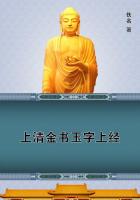"Even now I was in considerable difficulty, but a happy thought put me in possession of several other letters.It occurred to me that if these appeals came, as I expected, from someone who had been intimate with the lady in her early life, a combination which contained two E's with three letters between might very well stand for the name `ELSIE.' On examination I found that such a combination formed the termination of the message which was three times repeated.It was certainly some appeal to `Elsie.'
In this way I had got my L, S, and I.But what appeal could it be?
There were only four letters in the word which preceded `Elsie,'
and it ended in E.Surely the word must be `COME.' I tried all other four letters ending in E, but could find none to fit the case.
So now I was in possession of C, O, and M, and I was in a position to attack the first message once more, dividing it into words and putting dots for each symbol which was still unknown.
So treated it worked out in this fashion:--.M.ERE..E SL.NE.
"Now the first letter CAN only be A, which is a most useful discovery, since it occurs no fewer than three times in this short sentence, and the H is also apparent in the second word.
Now it becomes:--
AM HERE A.E SLANE.
Or, filling in the obvious vacancies in the name:--AM HERE ABE SLANEY.
I had so many letters now that I could proceed with considerable confidence to the second message, which worked out in this fashion:--A.ELRI.ES.
Here I could only make sense by putting T and G for the missing letters, and supposing that the name was that of some house or inn at which the writer was staying."Inspector Martin and I had listened with the utmost interest to the full and clear account of how my friend had produced results which had led to so complete a command over our difficulties.
"What did you do then, sir?" asked the inspector.
"I had every reason to suppose that this Abe Slaney was an American, since Abe is an American contraction, and since a letter from America had been the starting-point of all the trouble.I had also every cause to think that there was some criminal secret in the matter.The lady's allusions to her past and her refusal to take her husband into her confidence both pointed in that direction.I therefore cabled to my friend, Wilson Hargreave, of the New York Police Bureau, who has more than once made use of my knowledge of London crime.I asked him whether the name of Abe Slaney was known to him.Here is his reply: `The most dangerous crook in Chicago.' On the very evening upon which I had his answer Hilton Cubitt sent me the last message from Slaney.Working with known letters it took this form:--ELSIE.RE.ARE TO MEET THY GO.
The addition of a P and a D completed a message which showed me that the rascal was proceeding from persuasion to threats, and my knowledge of the crooks of Chicago prepared me to find that he might very rapidly put his words into action.I at once came to Norfolk with my friend and colleague, Dr.Watson, but, unhappily, only in time to find that the worst had already occurred.""It is a privilege to be associated with you in the handling of a case," said the inspector, warmly."You will excuse me, however, if I speak frankly to you.You are only answerable to yourself, but I have to answer to my superiors.If this Abe Slaney, living at Elrige's, is indeed the murderer, and if he has made his escape while I am seated here, I should certainly get into serious trouble.""You need not be uneasy.He will not try to escape.""How do you know?"
"To fly would be a confession of guilt."
"Then let us go to arrest him."
"I expect him here every instant."
"But why should he come?"
"Because I have written and asked him."
"But this is incredible, Mr.Holmes! Why should he come because you have asked him? Would not such a request rather rouse his suspicions and cause him to fly?""I think I have known how to frame the letter," said Sherlock Holmes."In fact, if I am not very much mistaken, here is the gentleman himself coming up the drive."A man was striding up the path which led to the door.He was a tall, handsome, swarthy fellow, clad in a suit of grey flannel, with a Panama hat, a bristling black beard, and a great, aggressive hooked nose, and flourishing a cane as he walked.
He swaggered up the path as if the place belonged to him, and we heard his loud, confident peal at the bell.
"I think, gentlemen," said Holmes, quietly, "that we had best take up our position behind the door.Every precaution is necessary when dealing with such a fellow.You will need your handcuffs, inspector.You can leave the talking to me."We waited in silence for a minute -- one of those minutes which one can never forget.Then the door opened and the man stepped in.In an instant Holmes clapped a pistol to his head and Martin slipped the handcuffs over his wrists.It was all done so swiftly and deftly that the fellow was helpless before he knew that he was attacked.He glared from one to the other of us with a pair of blazing black eyes.Then he burst into a bitter laugh.
"Well, gentlemen, you have the drop on me this time.I seem to have knocked up against something hard.But I came here in answer to a letter from Mrs.Hilton Cubitt.Don't tell me that she is in this? Don't tell me that she helped to set a trap for me?""Mrs.Hilton Cubitt was seriously injured and is at death's door."The man gave a hoarse cry of grief which rang through the house.
"You're crazy!" he cried, fiercely."It was he that was hurt, not she.Who would have hurt little Elsie? I may have threatened her, God forgive me, but I would not have touched a hair of her pretty head.Take it back -- you! Say that she is not hurt!""She was found badly wounded by the side of her dead husband."He sank with a deep groan on to the settee and buried his face in his manacled hands.For five minutes he was silent.Then he raised his face once more, and spoke with the cold composure of despair.
"I have nothing to hide from you, gentlemen," said he.















